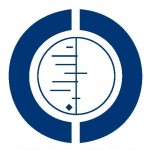
School prevention programs aimed at reducing alcohol misuse are good enough to consider widespread use, according to a new systematic review from the Cochrane Library.
The review found 53 studies that explored a range of interventions. Some studies concluded that the prevention program had no effect, but others showed more positive results. The authors could not recommend a specific program, but they did highlight three approaches of note:
- Life Skills Training Program
- Unplugged Program
- Good Behaviour Game
The authors concluded that their evidence supported the use of certain generic prevention programs over alcohol-specific ones.
Here’s the ironically titled Cochrane plain language summary:
We conducted a Cochrane systematic review of 53 well-designed experimental studies that examined the effectiveness of school-based universal programs for the prevention of alcohol misuse in young people. The studies were divided into two major groups based on the nature of the prevention program: 1) programs targeting specifically prevention or reduction of alcohol misuse and 2) generic programs with wider focus for prevention (e.g., other drug use/abuse, antisocial behavior).
In the review we found studies that showed no effects of the preventive program, as well as studies that demonstrated statistically significant effects. There was no easily discernible pattern in program characteristics that would distinguish studies with positive results from those with no effects. Most commonly observed positive effects across programs were for drunkenness and binge drinking.
In conclusion, current evidence suggests that certain generic psychosocial and developmental prevention programs can be effective and could be considered as policy and practice options. These include the Life Skills Training Program, the Unplugged program, and the Good Behaviour Game.
Foxcroft DR, Tsertsvadze A. Universal school-based prevention programs for alcohol misuse in young people. Cochrane Database of Systematic Reviews 2011, Issue 5. Art. No.: CD009113. DOI: 10.1002/14651858.CD009113.

